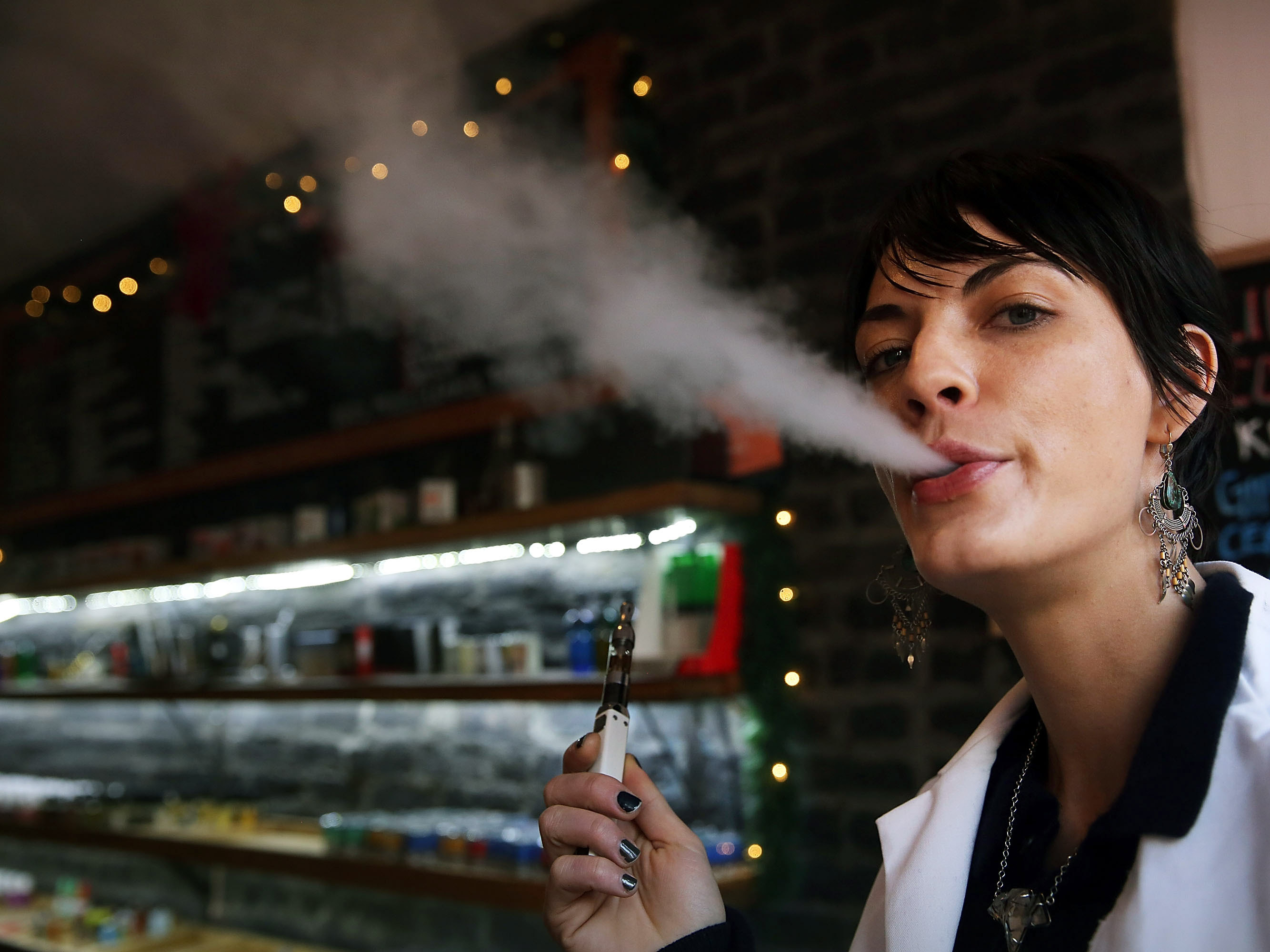- San Francisco officials passed an e-cigarette ban on Tuesday, outlawing the tobacco devices from being sold in stores or shipped to the city.
- E-cigarette advocates are angry about the ban, saying it takes away a smoking cessation method many former cigarette smokers use to manage the addiction. The city also has bigger issues, like homelessness and drug use, many argue.
- Tobacco policy experts told INSIDER that the e-cigarette ban is a bad idea because it could drive up traditional cigarette use, which comes with bigger health risks than vaping.
- Visit INSIDER’s homepage for more.
San Francisco officials passed an e-cigarette ban on Tuesday, outlawing the controversial tobacco devices from being sold in stores or shipped to the city.
When the news broke, San Francisco residents and e-cigarette advocates aired their concerns online, saying the ban wouldn’t solve the city’s more deep-seeded problems, like heroin use, homelessness, and pollution.
San Francisco: E-cigs are the devil!
Also San Francisco: Welcome to the world’s largest homeless tent.— vbspurs (@vbspurs) June 25, 2019
https://twitter.com/_DLarson/status/1143636482025873409?ref_src=twsrc%5Etfw
Perhaps most importantly, people said the ban would negatively affect the health of those who use e-cigarettes to abstain from smoking traditional cigarettes.
Thanks to E-cigarettes, I have gone from smoking over 20 cigarettes a day to smoking 2. These people don't know what they're doing.
— Joe Mercer (@smokinjoe101) June 25, 2019
https://twitter.com/Jormahoo/status/1143870687939051520?ref_src=twsrc%5Etfw
These e-cigarette users and advocates aren't alone in their thinking. INSIDER spoke with two tobacco policy experts, and both believe the newly imposed ban will undo the recent decline in cigarette smoking while making little to no impact on the problem most people point to when considering these bans: youth vaping.
The e-cigarette ban is driven by considering only one population: teens, experts say
The e-cigarette debate has cut the field of tobacco control in half, Kenneth Warner, a professor emeritus of health management and policy at University of Michigan, told INSIDER. There's the side that says e-cigarettes should be banned to protect teens, and one that says allowing them is a win for smokers trying to quit their habit.
The committee who decided San Francisco's e-cigarette fate seemed to only listen to the former, according to David B. Abrams, a professor in the social and behavioral sciences department at NYU's College of Global Public Health, agrees. "Several people laid groundwork for this [ban] and provided a one-sided scientific picture of harm and panic," he told INSIDER.
The teen vaping epidemic isn't as widespread as many believe it is, Abrams added, but the narrative of saving teens is so compelling, policy makers and pro-ban organizations have chosen to run with it.
"It's an ideological vendetta. [Allowing e-cigarettes] doesn't fit the narrative that all forms of tobacco and nicotine are evil," he said. "People who believe in banning all nicotine regardless of safety think it's all big tobacco out to get us and believe they are justified in distorting the data [to support the narrative]."
Read more: The FDA is so concerned about teen vaping, they're considering drug therapy to help kids quit
Those who see e-cigarettes as a win for smokers, however, point to a January study in New England Journal of Medicine looking at various smoking cessation methods like a nicotine patch, gum, and e-cigarettes, all of which were coupled with behavioral therapy. The researchers found that e-cigarettes were the most successful at helping smokers quit traditional cigarettes in the long term. The e-cigarette users did, however, report more throat and mouth irritation than those who used other nicotine replacements. They were also more dependent on their e-cigarettes than people who used other cessation methods.
Vaping comes with health risks, but they aren't as severe as the risks of traditional cigarettes
Even with the health risks e-cigarettes carry, like increased heart attack risk and the potential to consume heavy metals from vape juice cartridges that deliver the nicotine to users, Abrams said they're a much safer option for people who used to smoke cigarettes.
For example, vaping doubles a person's risk of heart attack, while smoking traditional cigarettes triples their risk. Both risks are bleak, but according to Abrams, the San Francisco e-cigarette ban could "inadvertently help keep cigarettes on the market and support the most lethal of all the products."
Protecting teen health is important, but some experts say banning e-cigarettes isn't the solution
Supporters of the new ban often point to protecting teen health as a reason for instating it. "Middle school and high school students are becoming addicted to nicotine because of e-cigarettes, so we want to do everything we can to keep e-cigarettes out of the hands of young people until the FDA conducts the appropriate clinical trials and finds out how these should be marketed. We need to make sure we protect young people," San Francisco Supervisor Shamann Walton, who co-authored the legislation, told CBS MoneyWatch. (The San Francisco Board of Directors did not respond to INSIDER's request for comment.)
Indeed, a recent Centers for Disease Control and Prevention (CDC) report found that in 2018, more than 3.6 million U.S. middle and high school students used e-cigarettes in the past 30 days. The 3.6 million comprised of 4.9% of middle school students and 20.8% of high school students.
For this reason, organizations including the American Academy of Pediatrics, American Heart Association, and American Lung Association have been outspoken about their call to ban flavored e-cigarettes and tobacco products, and prohibit online e-cigarette sales to protect teens. The American Cancer Association, however, is more perceptive to e-cigarette use as a smoking cessation method.
The e-cigarette ban in San Francisco might be the first of many
Abrams and Warner both worry that the San Francisco ban could be a precedent for other US cities, making e-cigarettes less accessible for people who need them to stay away from cigarettes. Although they agree that the health of America's youth is important, they hope the public considers the safety of former smokers or those who are currently trying to quit.
"If we were to see some kids, who wouldn't have smoked otherwise if vapes didn't exist, start smoking as a result of having vaped, what are the odds they would remain smokers when the risks catch up to them at age 40 or 45?" Warner said. "People who are adult smokers today are at risk of dying tomorrow. Vapes may be addictive, but they are less dangerous than cigarettes."
San Francisco's e-cigarette ban is slated to go into effect in early 2020.
- Read more:
- Vaping might be better for you than smoking, but e-cigarettes like Juul come with risks of their own
- A man died after an e-cigarette exploded in his face, and his isn't the first death from these devices
- Teens are obsessed with candy and fruit flavored e-cigs like Juul - now the FDA is announcing a major a crackdown

